
Singapore Polytechnic’s Future Food Lab (FFL) was launched in April 2024 to enhance the school’s Future Food Innovation District, its food technology incubation space. The FFL is part of the district’s capability to keep up with the latest food technology trends, allowing students, researchers, and start-ups to collaborate on developing alternative proteins and waste valorisation products that could be commercialised later. Specifically, it works with start-ups in the areas of fermentation, cell culture, and insect protein formulation.
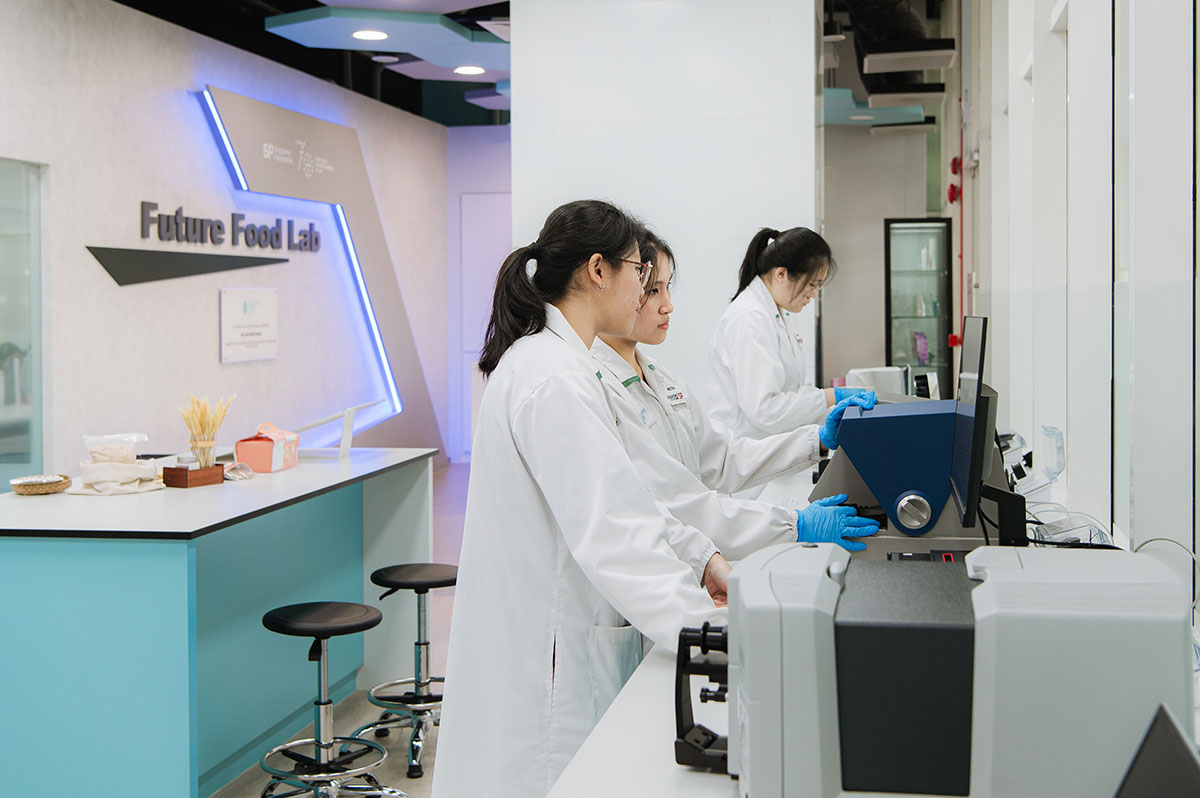
Singapore Polytechnic’s Future Food Lab, where students, researchers, and start-ups develop alternative proteins and waste valorisation products.
It houses cutting-edge equipment, including bioreactors that can ferment inputs and cultivate organic material, and an infrared analyser that allows users to quantify the major constituents in various food and agricultural products.
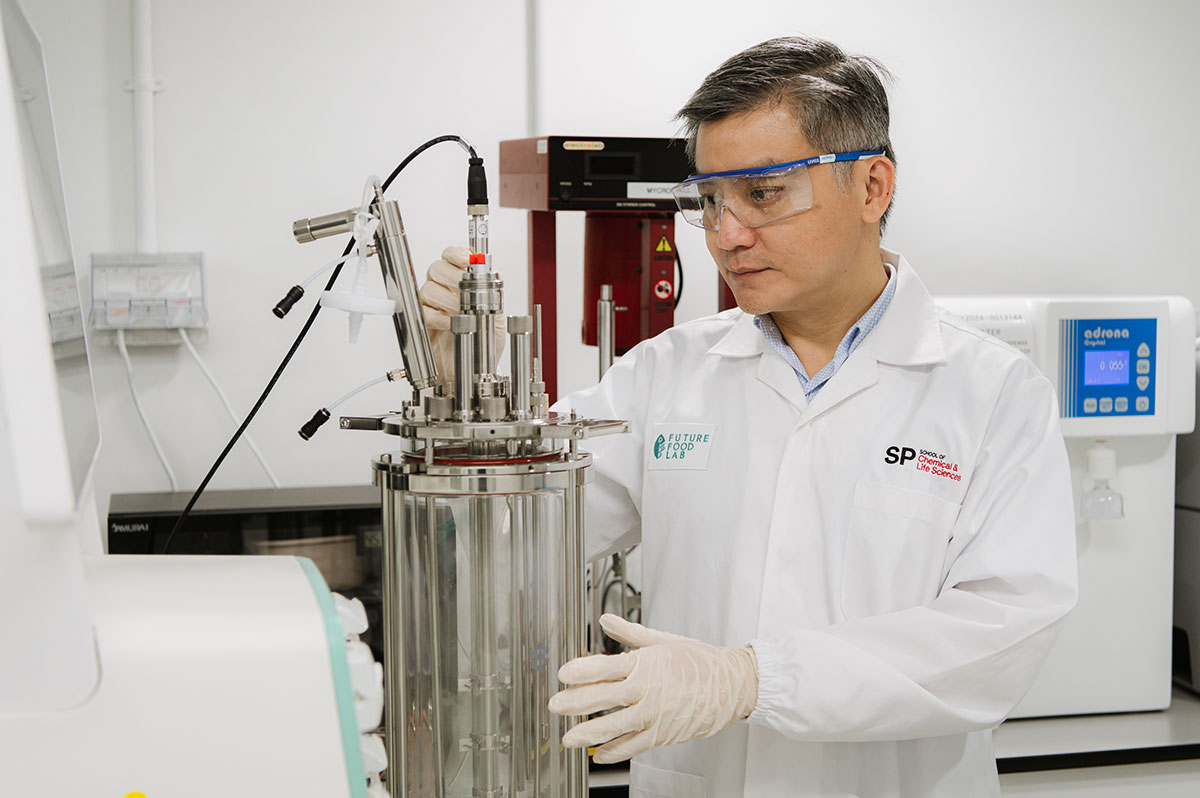
The lab’s bioreactors ferment inputs and cultivate organic material.
Singapore aims to produce 30% of its nutritional needs by 2030. To meet this target, new locally grown and made products need to be created so that the country relies less on imported food, and is more food secure.
Meanwhile, current global meat production and consumption levels are causing environmental issues. A plant-based diet generates less greenhouse gases.
Singapore’s population is rapidly ageing, with a risk of more diabetic patients among older people. This has increased the demand for healthy and elderly-friendly food products high in fibre and protein, and have low glycemic indexes.
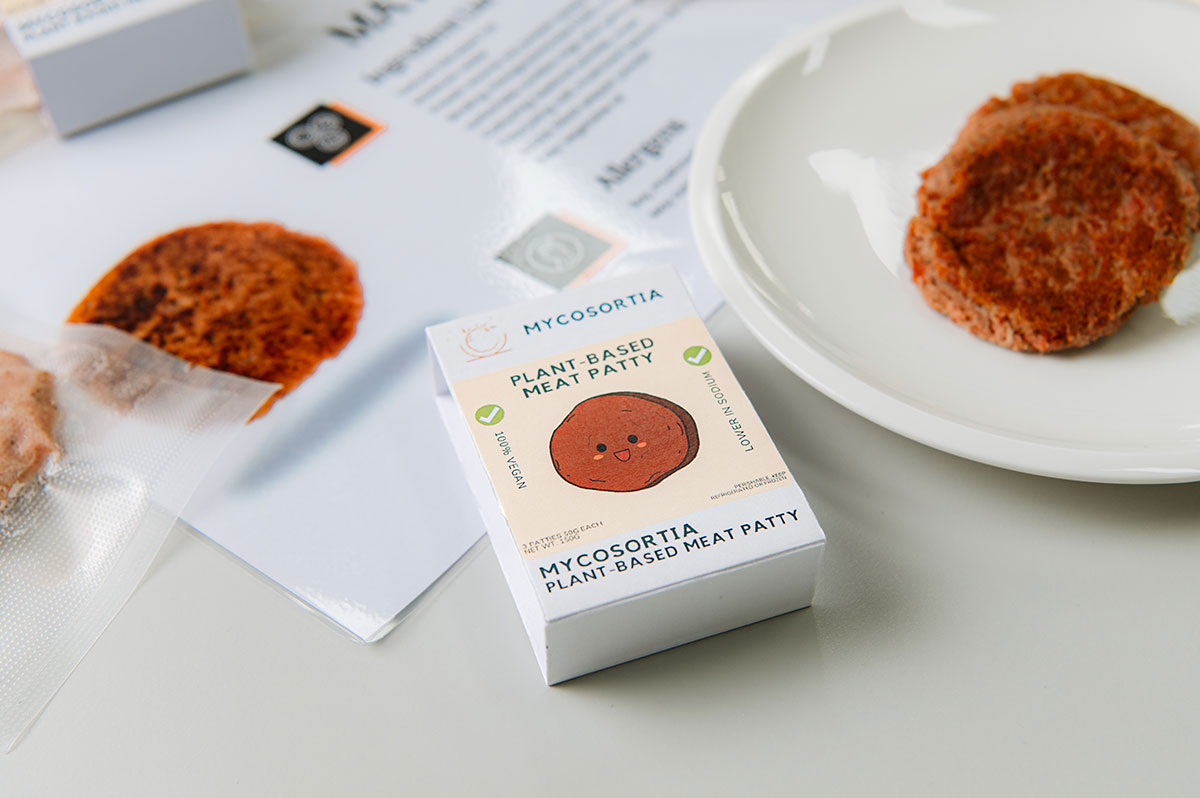
Mycosortia’s meat substitute patties;
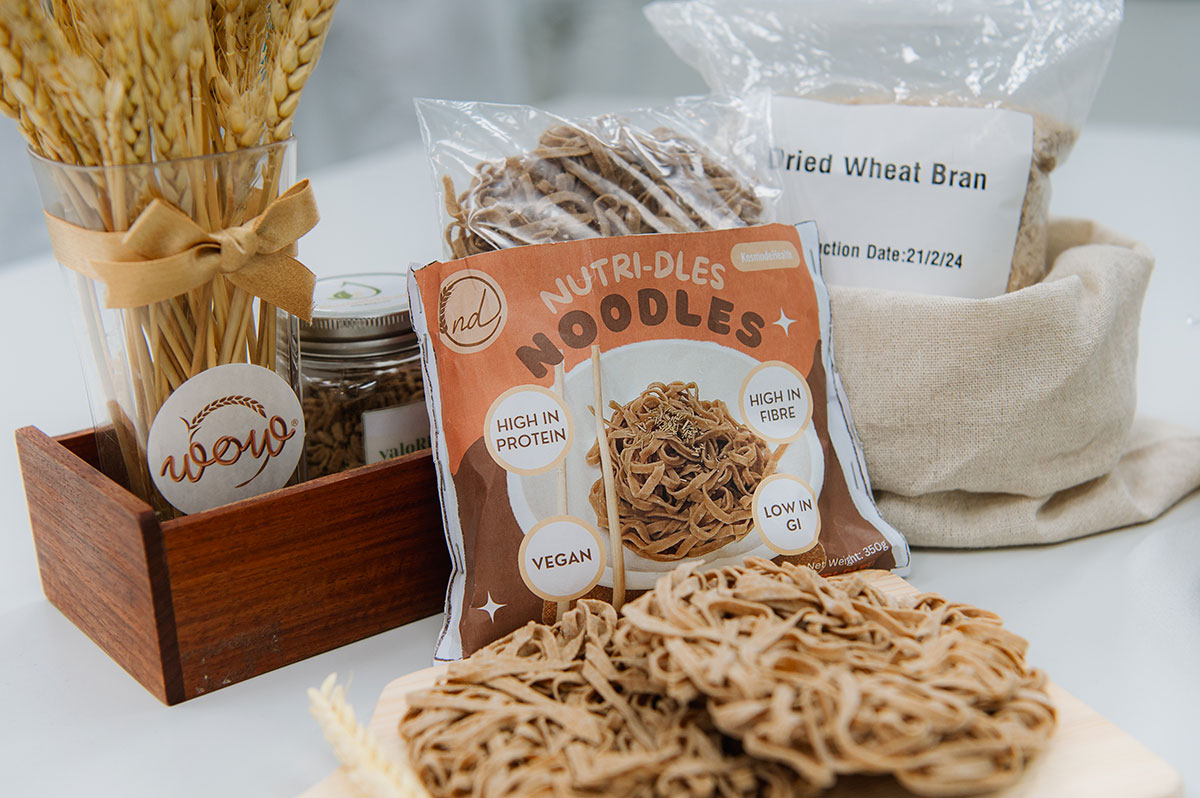
Kosmode Health’s high-protein, waste-friendly noodles.
Equipment in the lab is shared among industry partners, staff, and students. Teams can collaborate and discuss new ideas, allowing companies to develop new products more quickly.
The infrared analyzer and bioreactors are also crucial to the companies. Without the analyzers, the industry partners would need to rely on external testing services, raising costs and delaying the research process. The bioreactors are necessary to process plant-based ingredients and turn them into edible proteins.
FFL has signed on three industry partners that will work with its team over three years: Kosmode Health, which is coming up with a high-fiber, high-protein noodles made from spent barley grains, a common food waste; Mycosortia, which uses microbial biotransformation to create healthy meat substitutes; and Mycrocell, which is creating alternative proteins from mushroom mycelium.
Dr Geng Anli, Mycosortia’s founder, said she was “honoured” to be selected as one of FFL’s industry partners, noting that it will “significantly expedite our product development journey and pave the way for successful commercialization.”
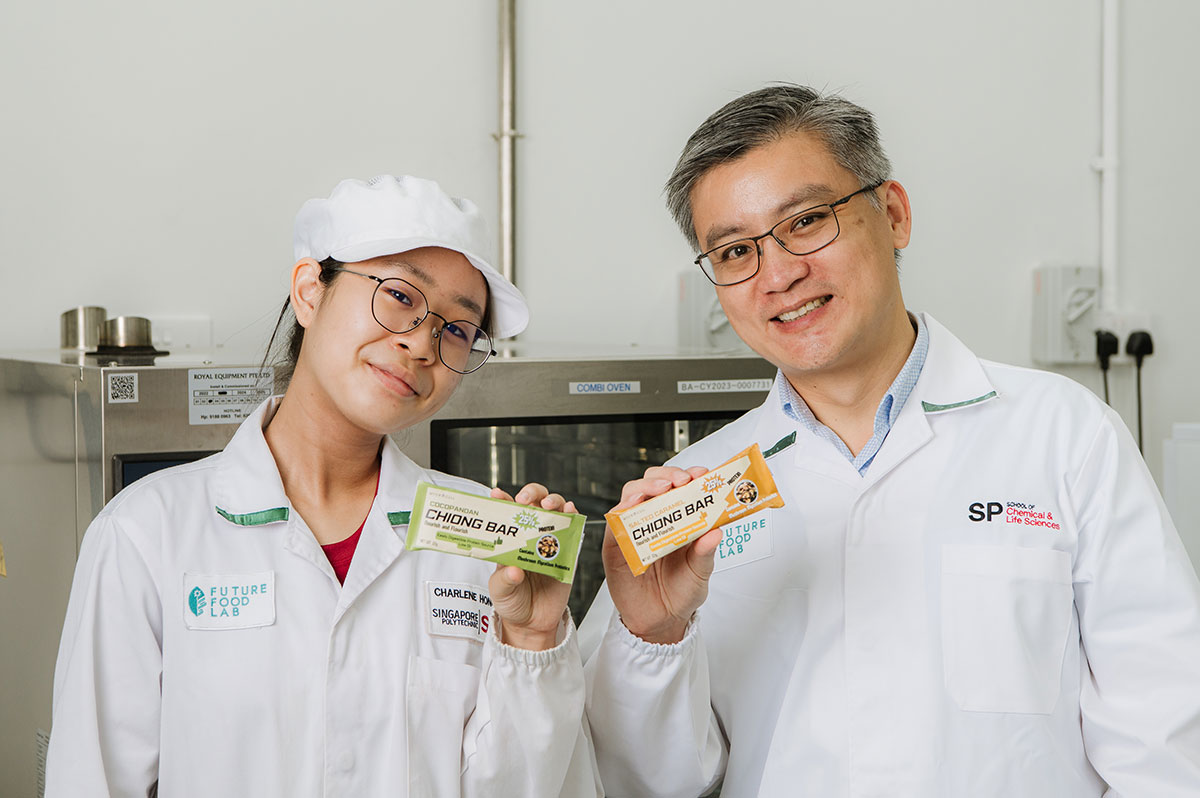
Food Science and Technology student Charlene Hong (left) worked with Mycrocell’s founder Raymond Tham (right) to create mushroom mycelium-based protein bars.
The FFL has allowed students to co-create unique food products that the public could one day enjoy. For example, 19-year-old Charlene Hong worked with Mycrocell’s founder Raymond Tham to create a protein bar that contains mushroom mycelium called “Chiong Bar”. She also picked up pitching and marketing skills that will be useful for her future career.